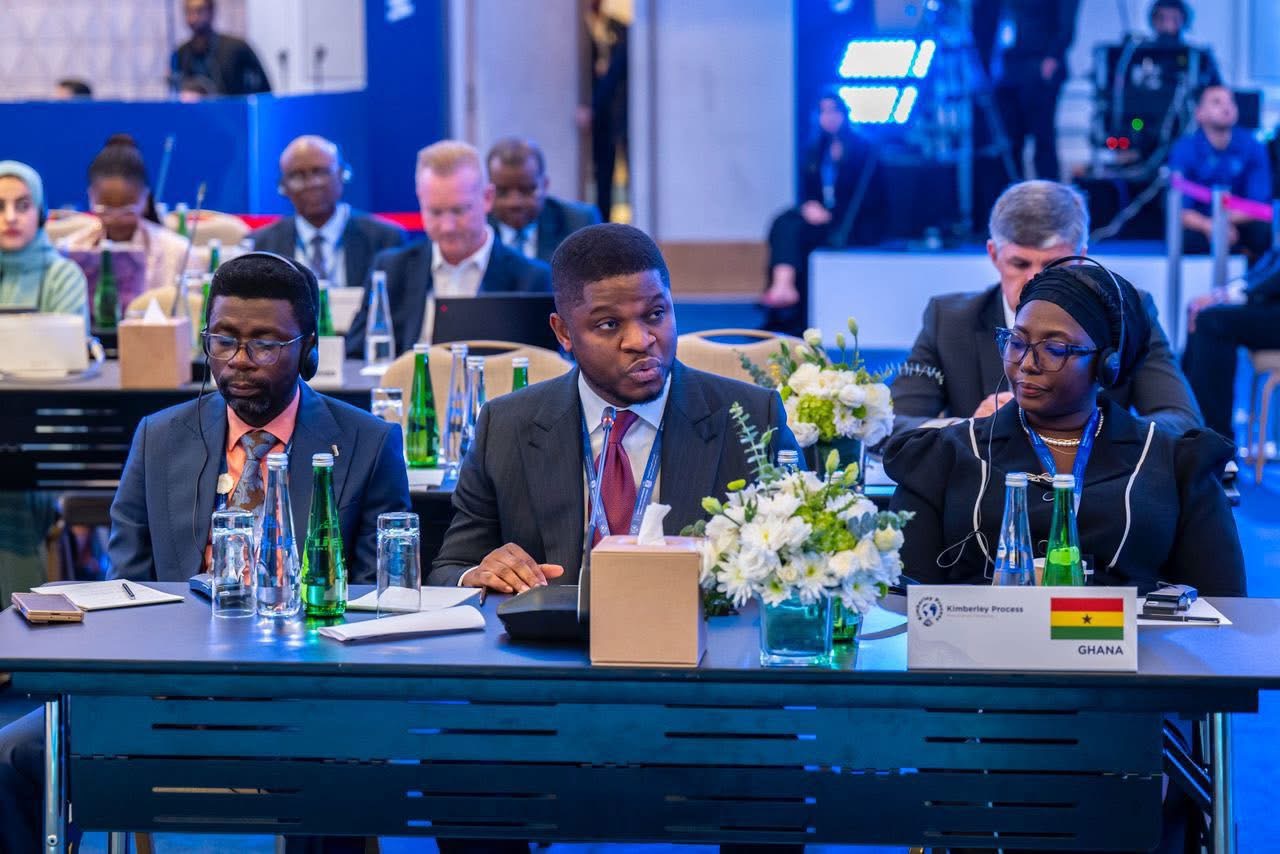The Chief Executive Officer of the Ghana Gold Board, Sammy Gyamfi, Esq. has called on participants of the Kimberley Process to embrace incremental reforms and renewed consensus to protect vulnerable diamond-producing communities and maintain the credibility of the global diamond trade.
Addressing the Ministerial Meeting in Dubai, Sammy Gyamfi, Esq. described the Kimberley Process as a “historic achievement” that, for over two decades, has prevented diamonds from funding conflict and human suffering.
However, he cautioned that the nature of conflict has evolved, with many communities now facing exploitation, dispossession, and exclusion rather than armed violence.
“Conflict is no longer confined to rebel armies in the bush. Today, diamond communities may not hear gunfire, but they feel the violence of exploitation, dispossession and exclusion,” he said.
Mr. Gyamfi highlighted that while debates around the definition of “conflict diamonds” continue, the urgency for reform has never been greater.
He called on all participants to find common ground and prioritize meaningful action over perfect solutions.
“Consensus is at the heart of the Kimberley Process. But consensus must be a path to progress and not a recipe for paralysis,” he emphasized.
“We may not find a perfect text that satisfies every delegation on every point, but we can and must take steps, however modest to strengthen the credibility, relevance and moral authority of this Process,” he added.
Ghana, he noted, remains committed to dialogue and cooperation, urging delegates to focus on shared objectives and solutions that protect communities while safeguarding legitimate trade.
“Let history record that this meeting chose renewal over stagnation and cooperation over narrow interest, and that we moved forward, even if by small but significant steps,” Mr. Gyamfi concluded.
The Kimberly Process, instituted in 2003, brings together governments, industry stakeholders, and civil society representatives to address ongoing challenges in the diamond trade and ensure the Kimberley Process remains effective in a rapidly changing global landscape.




